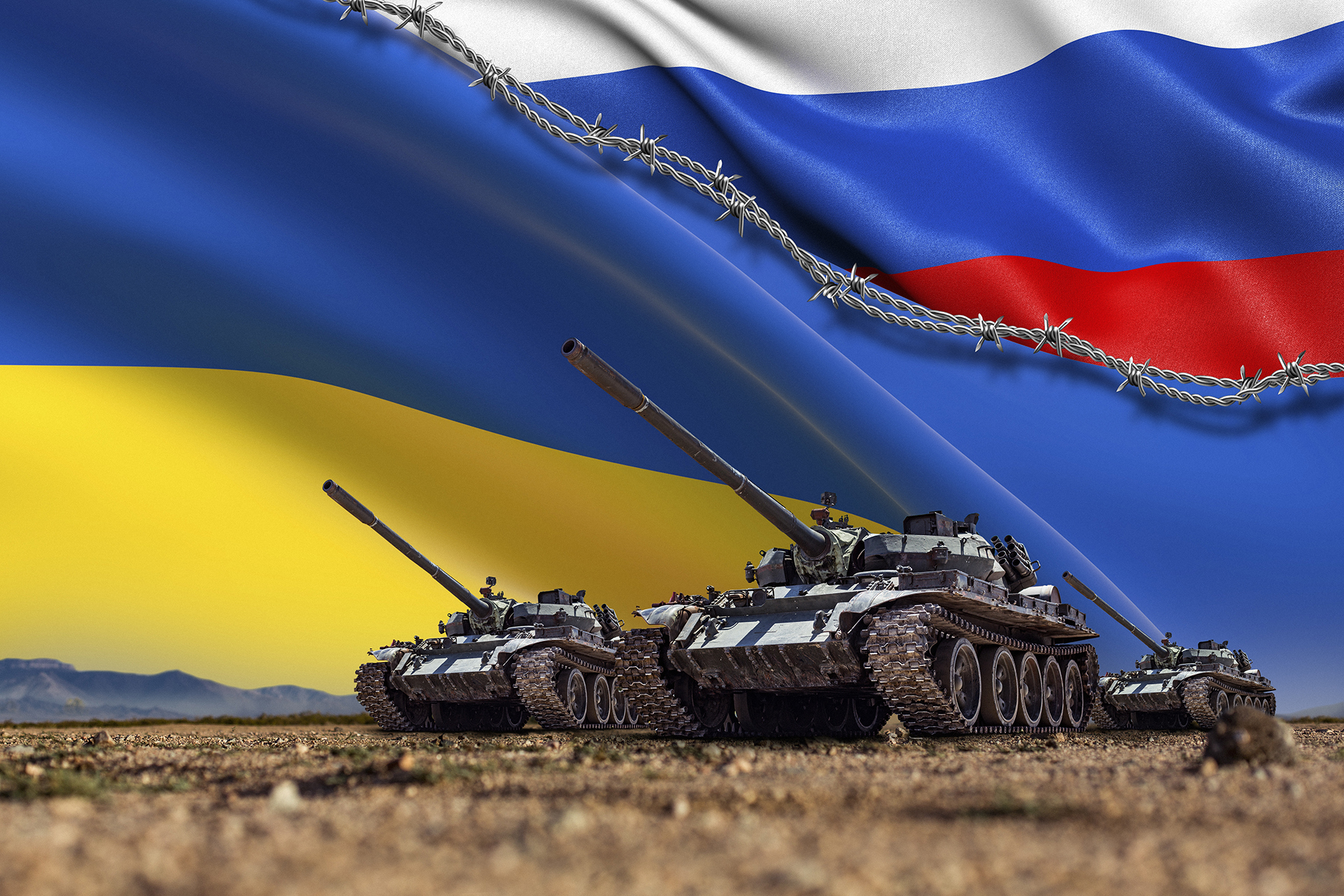American political scientist Francis Fukuyama hailed “the end of history” and the ascendancy of Western liberal democracy in an article published in the National Interest at the very moment of the fall of the Berlin Wall in 1989. Fukuyama naively prophesized the rise of the unipolar world order led by the United States and the downfall of its eastern archenemy, the Soviet Union. As later events revealed, history did not die. Rather, it remains dialectical in the Hegelian sense, in which every hegemon requiresa contender. However, what we have been increasingly witnessing with the highly mediatized Russia-Ukraine conflict is the end of ethics as we know itand the scandalous fall from grace of western liberal values.
When a Muslim jihadist is framed as a terrorist while his white blue-eyed Christian counterpart is celebrated as a liberating hero; when Western countries can invade Iraq without being held accountable while their Russian rival is internationally demonized for similar actions; when an exclusive club can own and trade weapons of mass destruction while others are deemed too irresponsible to manage a nuclear program, it should be clearthat the very notion of morality is broken. It is the end not of history, but of the romanticized anthropocentric Renaissance ideals. The argument here is not about whether occupying a sovereign country like Ukraine is right or wrong – that is not even up for debate – but rather about who gets to shape the truth.
The Truth Has Been Canceled
The Russian invasion of Ukraine shocked people’s minds and recalled memories of horror scenes from the 20th century’s two world wars. Instead of running to rescue their European peers, NATO countries preferred to opt for double standards and hypocrisy, imposing a regime in which Russian gas, oil, coal, and wheat are welcomed to heat and fuel Europe, and the Moscow population is deprived of essential banking services, western brands, and international mobility. It is as if the West is only interested in marketing itself as sympathetic to Ukrainian civilians by depriving the “evil” Russians of their dose of McDonald’s, Coca-Cola, and Chanel rather than stepping in with diehard military field action.
Another key response has been to silence Russian media outlets like Russia Today and Sputnik News across NATO countries and their allies. Any information coming from Volga country has either been labeled as misleading propaganda or completely banned from broadcasting and suppressed from social media platforms. During warfare, both camps routinely use misinformation as an aggressive weapon. Nevertheless, what is occurring during this crisis is a never-before seen level of intellectual guardianship over the populace. As if the average Joe is judged too obtuse to look at the two sides and form his own opinion. To add insult to injury, Meta even declared last week that it would permit one-way hate speech toward Russian soldiers on Facebook and Instagram.
In our post-truth world, ostracism and cancel culture became a weapon in the hands of those who control the flow of information through media and social media platforms. They choose who gets a voice and space for expression and who gets silenced and banished from the public sphere. Where some see accountability and the protection of oppressed and minority rights, others see censorship and ideological despotism. The tyranny of a single narrative, even when predominately righteous and morally motivated, remains inherently unethical and historically calamitous.
As an Arab, I can only feel baffled by a West religiously preaching freedom of speech and giving the Middle East long lessons and even assessing scores on access to information and state-inflicted censorship. As a journalist, who has been trained in balance, impartiality, and fact-checking, I am deeply disturbed when reputable media institutions intentionally choose to obscure certain items in the news and promote others. Every media or social media organization has the right to pick its own editorial line and guiding principles. Then again, shouldn’t we all abide by a common Voltairean deontological dictum stipulating that “I may disapprove of what you say, but I will defend to death your right to say it?”
The Honorable White Mercenary
The end of ethics is a phenomenon that can be sensed in all aspects of how the West deals with global conflicts and interests, like a corrupt cop who only condemns practices that clash with his agenda. For example, why didn’t anyoneimpose sanctions on Saudi Arabia over bombing Yemen? Gucci, Nike, and Mercedes did not withdraw from that Gulf market. No one publicly pressured them to close shop. Similarly, why did the West demonize Iran and Venezuela for years and is now suddenly interested in compromising with them to respond to potential petroleum shortages? The immoral league that rules the world is no longer even trying to hide its dubious duplicity.
The epitome of these immoral actions is visible in the Western powers shameless incitement of their civilian citizens to volunteer with the Ukrainian foreign legion, comprising over twenty thousand combatants. Countries like Denmark, the United Kingdom, and Canada openly encouraged their compatriots to enlist in the holy neo-crusades against the new tsar of Russia. Now, imagine if an Arab country was at war and the League of Arab States invited fighters to resist the enemy. Would they be called saviors or terrorists? Would Western political and media discourses celebrate them as heroes or condemn them as threatening mercenaries? The recent conflict has revealed that the rules of the game and its semantics apply differently depending on skin color, religion, race, and country of origin.
Many Arabs have not been very supportive of NATO’s actions in Ukraine, not because they admire the megalomaniac blood-thirsty ruler of Russia, but because they stood in the first row of the altar of history and saw ethics being slaughtered at the gates of their cities. They do not like Putin. They like the idea of Putin challenging western hegemony. Sorry Fukuyama, history is alive and thriving. It is even organically manufacturing Chinese, Russian, and violent extremism anti-theses to counter the sinister unipolar narrative dominated by the United States and its allies. What has ultimately perished in the lot is our collective ability to abide by the fundamental deontological ethics of humanity: impartiality, neutrality, unity, and universality.
The views expressed in this article are the author’s own and do not necessarily reflect Fair Observer’s editorial policy.
Support Fair Observer
We rely on your support for our independence, diversity and quality.
For more than 10 years, Fair Observer has been free, fair and independent. No billionaire owns us, no advertisers control us. We are a reader-supported nonprofit. Unlike many other publications, we keep our content free for readers regardless of where they live or whether they can afford to pay. We have no paywalls and no ads.
In the post-truth era of fake news, echo chambers and filter bubbles, we publish a plurality of perspectives from around the world. Anyone can publish with us, but everyone goes through a rigorous editorial process. So, you get fact-checked, well-reasoned content instead of noise.
We publish 2,500+ voices from 90+ countries. We also conduct education and training programs
on subjects ranging from digital media and journalism to writing and critical thinking. This
doesn’t come cheap. Servers, editors, trainers and web developers cost
money.
Please consider supporting us on a regular basis as a recurring donor or a
sustaining member.
Will you support FO’s journalism?
We rely on your support for our independence, diversity and quality.







Comment